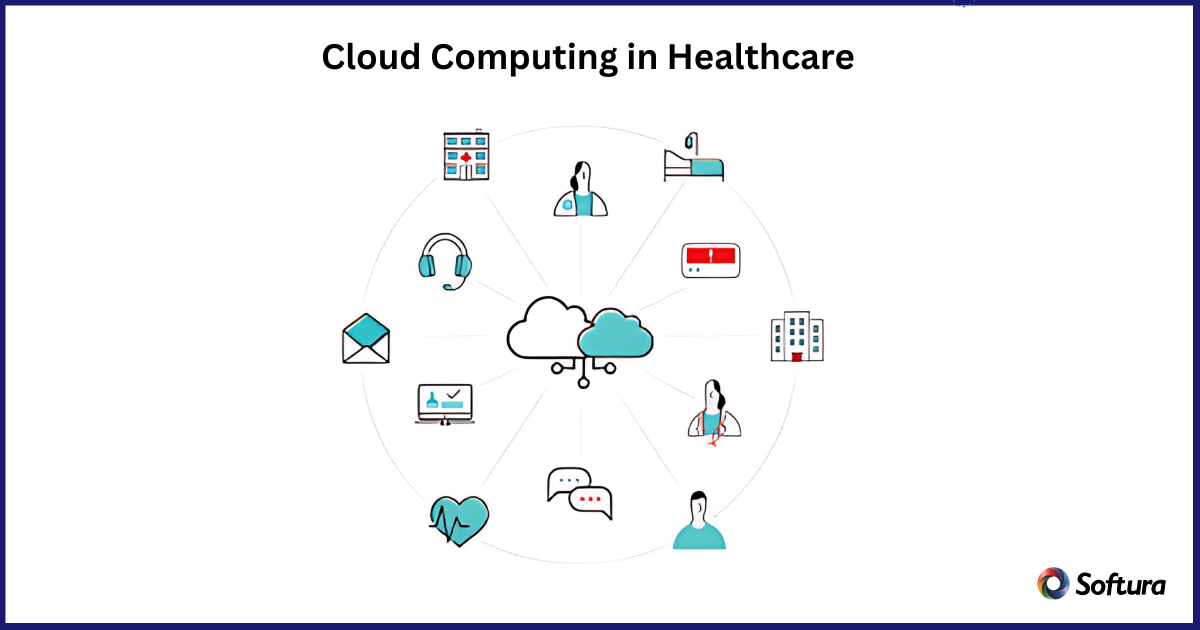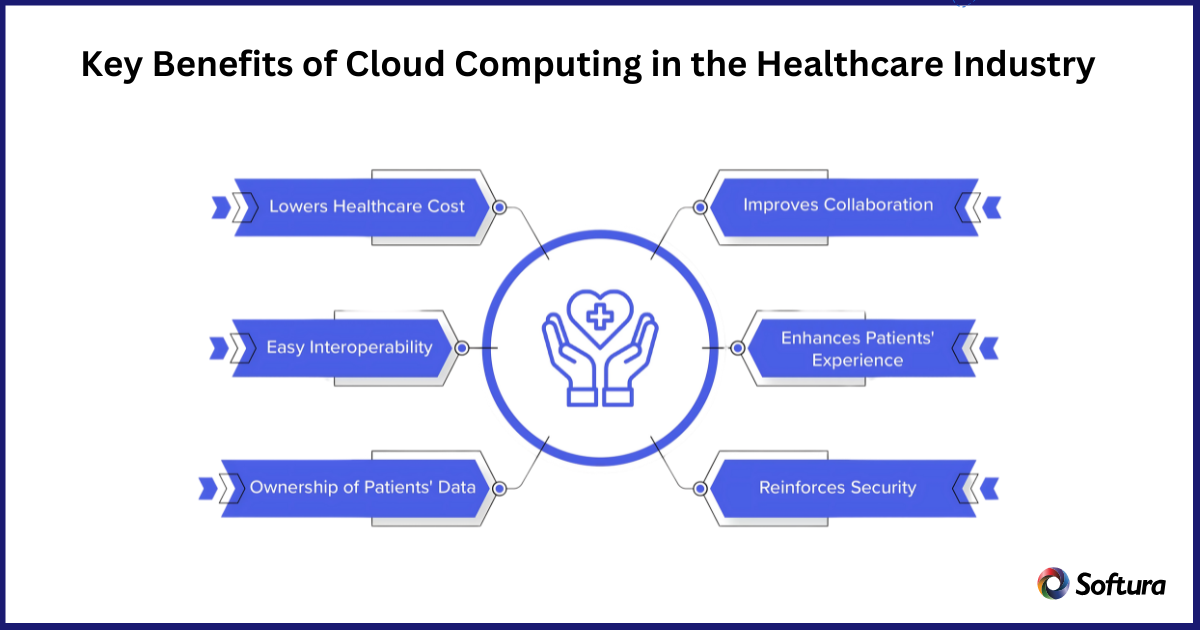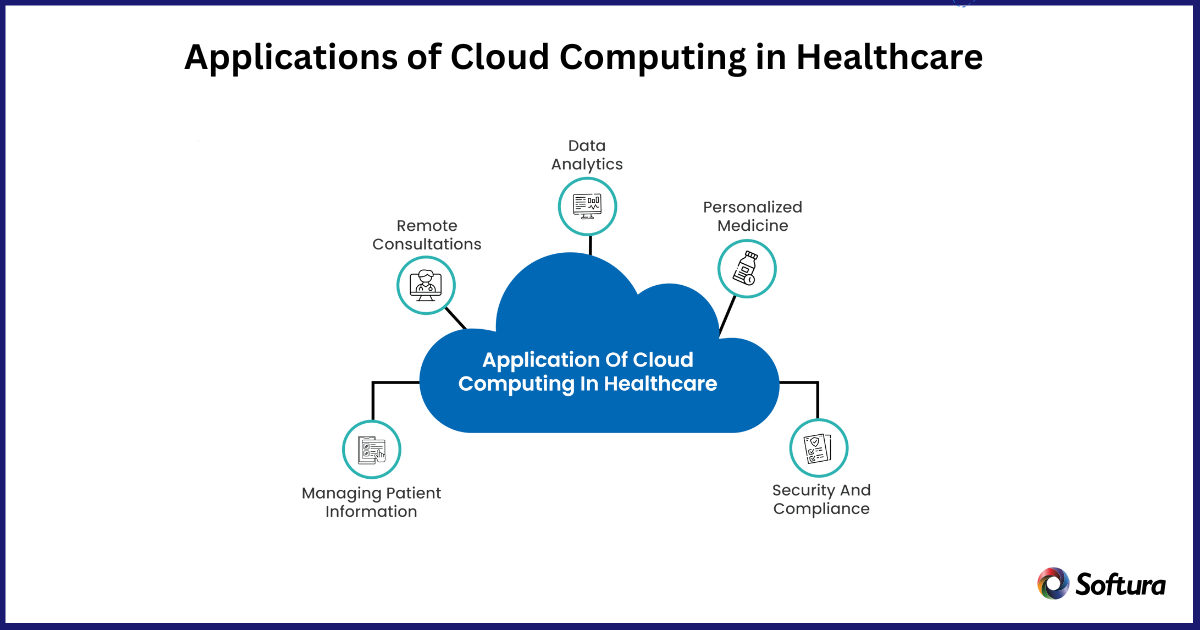"Our integration with the Google Nest smart thermostats through Aidoo Pro represents an unprecedented leap forward for our industry."
- Antonio Mediato, founder and CEO of Airzone.
Imagine a world where your medical history is instantly accessible, your doctor can monitor your health remotely, and life-saving treatments are devised with the power of artificial intelligence. Welcome to the revolution of cloud computing in the healthcare industry. As hospitals and clinics embrace digital transformation, cloud computing emerges as the backbone of this evolution, enabling faster, smarter, and more personalized care. But how exactly does this technology work, and why is it so crucial for modern healthcare? Let’s explore.
At its core, cloud computing in healthcare refers to the storage, processing, and management of data over the internet rather than on local servers. In healthcare, this means securely storing patient records, sharing medical imaging, running advanced analytics, and much more—all on cloud platforms.
Picture a scenario where a patient in a remote area needs a specialist consultation like SharePoint consulting services. With cloud computing, their medical history, test results, and imaging can be instantly shared with experts across the globe. This seamless access and collaboration have the potential to save lives and deliver care faster than ever before.

"Our integration with the Google Nest smart thermostats through Aidoo Pro represents an unprecedented leap forward for our industry."
- Antonio Mediato, founder and CEO of Airzone.
Improved Data Accessibility and Collaboration
Have you ever been frustrated by having to fill out the same medical history forms at every clinic? Cloud computing in healthcare industry eliminates this redundancy. It allows healthcare providers to access a centralized repository of patient data from anywhere. Doctors, nurses, and specialists can collaborate in real-time, ensuring better diagnoses and continuity of care.
Enhanced Data Security and Compliance
The healthcare industry is a prime target for cyberattacks. However, cloud computing offers robust security measures like encryption, multi-factor authentication, and constant monitoring to protect sensitive patient data. Moreover, leading cloud providers comply with regulations like HIPAA and GDPR, ensuring that healthcare organizations meet legal standards.
Cost Efficiency and Scalability
Healthcare providers often struggle with the high costs of maintaining IT infrastructure. Cloud computing in healthcare eliminates the need for expensive servers and IT maintenance, allowing organizations to pay only for the resources they use. It’s also highly scalable, making it perfect for growing hospitals and clinics that need to expand their data storage and processing capabilities.

"By analyzing the data from our connected lights, devices and systems, our goal is to create additional value for our customers through data-enabled services that unlock new capabilities and experiences."
- Harsh Chitale, leader of Philips Lighting’s Professional Business.
Electronic Health Records (EHR) and Patient Data Management
Gone are the days of bulky paper files. With cloud-based EHR systems, patient records are digitized, secure, and easily accessible. Imagine a scenario where a patient with a chronic condition switches hospitals. Their medical history can be instantly transferred, ensuring uninterrupted care.
Telemedicine and Remote Patient Monitoring
During the COVID-19 pandemic, telemedicine skyrocketed, showcasing the power of cloud computing. Patients can now consult doctors virtually, monitor chronic conditions with wearable devices, and share real-time health data—all through cloud-enabled platforms. For rural areas, this is a game-changer, bringing expert care to even the most remote locations.
AI-Powered Diagnostics and Predictive Analytics
Cloud computing in healthcare supports artificial intelligence tools that analyze medical data for faster and more accurate diagnoses. For example, AI algorithms can scan millions of medical images to detect early signs of diseases like cancer. Predictive analytics also helps in identifying at-risk patients and preventing complications before they arise.
Streamlining Administrative Processes
Scheduling appointments, processing insurance claims, and managing billing can be overwhelming for healthcare providers. Cloud-based systems streamline these administrative tasks, reducing errors and improving efficiency. The result? Healthcare providers can focus more on patients and less on paperwork.

"By analyzing the data from our connected lights, devices and systems, our goal is to create additional value for our customers through data-enabled services that unlock new capabilities and experiences."
- Harsh Chitale, leader of Philips Lighting’s Professional Business.
How does cloud computing in healthcare directly impact patients? The answer lies in its ability to provide personalized, proactive, and efficient care. For instance:
"By analyzing the data from our connected lights, devices and systems, our goal is to create additional value for our customers through data-enabled services that unlock new capabilities and experiences."
- Harsh Chitale, leader of Philips Lighting’s Professional Business.
Despite its benefits, adopting cloud computing in healthcare isn’t without hurdles.
Partner with Trusted Cloud Providers: Choose providers with proven expertise in healthcare and a strong focus on security.
Focus on Compliance: Ensure that all cloud systems meet industry regulations like HIPAA and GDPR.
Train Your Staff: Equip healthcare professionals with the knowledge and skills to use cloud platforms effectively.
Adopt a Phased Approach: Start with non-critical functions like appointment scheduling and gradually migrate sensitive operations.
Regularly Monitor and Update: Continuously review cloud systems for performance and security updates.
Custom Wound Care EMR Application
A wound care group operating across multiple health systems faced challenges with disparate EMR systems that lacked specialized wound care functionalities. Softura stepped in to design and deploy a custom web-based Wound Care EMR application. This cloud-based SaaS solution integrated seamlessly with existing hospital EMRs like EPIC and Cerner, provided e-prescription capabilities, and featured a secure patient portal. The result? A unified patient view across all facilities, enhanced efficiency, and improved patient care.
Mobile App & API Development for Clinical Research Center
A top-ranked private research university needed a versatile application to manage various clinical studies. Softura developed native iOS and Android apps, along with a cloud-hosted administration site. This setup enabled participants to stay engaged through reminders and notifications, while administrators could manage studies from anywhere in the U.S. The streamlined communication and protocol management led to improved participant retention and efficient study execution.
Cloud App Development for Managing Clinical Studies
Another leading private research university was juggling clinical study data using outdated methods like Access Databases and Excel spreadsheets. Softura introduced a HIPAA-compliant cloud-based solution hosted on Microsoft Azure. This platform offered role-based user permissions, integrated communication tools, and real-time analytics. The outcome was a significant boost in productivity, enhanced compliance, and cost savings, as the university could now manage all its studies through a single application.
Custom App Development for Electronic Medical Records Company
An EMR company specializing in wound care and hyperbaric medicine sought to enhance its software offerings. Softura developed "Heal Metrics," a cloud-based EMR application hosted on Azure. Packed with features like intuitive navigation, enhanced data security, and automated notifications, this solution met stringent security and government compliance requirements, including HIPAA. Hospitals could deploy the software swiftly, allowing medical staff to focus more on patient care rather than software maintenance.
Looking for Offshore Dedicated Developers?
Our skilled experts are ready to help. Let's discuss your automation needs.
What’s next for cloud computing in healthcare? Expect these exciting trends:
Cloud computing is more than a technological upgrade; it’s a transformative force in the healthcare industry. By enabling real-time data access, enhancing patient care, and driving operational efficiency, it is reshaping how healthcare is delivered. While challenges remain, the benefits far outweigh the hurdles. As the healthcare industry embraces the cloud computing , we’re moving closer to a world where every patient receives timely, personalized, and efficient care. The future of healthcare is in the cloud, and the time to adopt it is now.
Are you ready for your next project?
Unlock your company's full potential with our comprehensive Offshore development services. Contact our experts today to discuss how we can drive your success together.